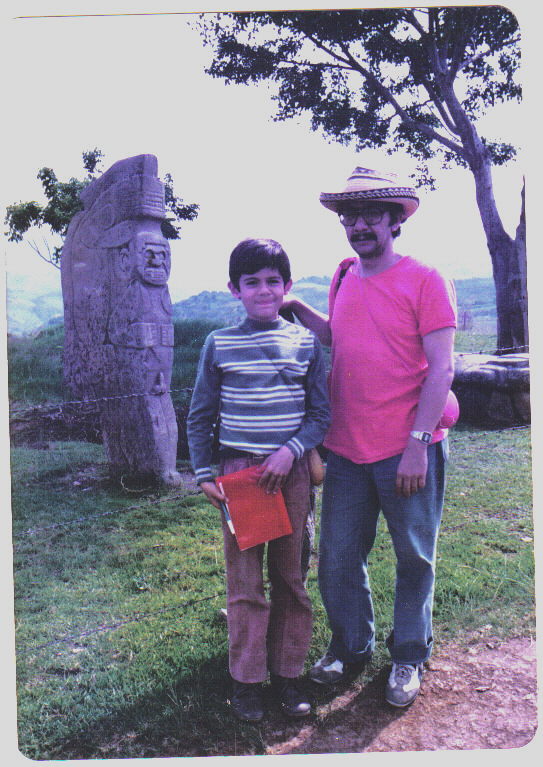
Born in Bogotá in 1973.
His parents were teachers and left-wing activists.
They met in Leuven, Belgium.
They believe in revolution and they came to live in Colombia to make it.
Among the many books in the house there is one with a red cover where it was written ‘The Bible’. It was, in fact, ‘Das Kapital’. His parents tell him that it is to conceal it in case of raids. They live under Turbay Ayala’s government.
They tell him that if something happened, he should get under the bed with his sister and not come out until he heard the door close.
He wonders if all this dissimulation serves any purpose.
He grows up happily in Banderas, a neighbourhood with five-storey buildings, low flats, paddocks and multiple hiding places.
He plays with his friends almost every afternoon of his childhood.
He learns what it means to belong to a neighbourhood, to have a gang and try to meet a girlfriend.
He reads what he can.
His father suggests he should venture into serious reading.
He doesn’t understand: there is nothing more serious than Moby Dick, The Black Corsair or Taras Bulba.
He writes poems. He wants to fall in love.
He invents Constanza, an unattainable revolutionary beautiful girl with whom he’ll be happy at a distance.
He gets bored at the Externado Camilo Torres school and returns to the Claretiano de Bosa where he attends the first congresses of the National Organization of Colombian Indigenous (ONIC) and takes part in plays, newspapers and student movements. He loves cinema.
He goes to the National University of Colombia to study Economics to try to understand ‘Das Kapital’.
During his first semesters he grows his hair long, wears a traditional bagpack and wears workers boots.
But he discovers a lot of filmakers and decides to look as much like Andrés Caicedo as possible, like so many other young people in the city.
He finishes his economics studies with a thesis on chapter XVII of the third volume of Das Kapital, which nobody reads, against his hopes.
He gets deeply depressed when he finishes it and wonders what he really wants to do with his life. A disease makes him loose part of his audition.
He travels to the south of Colombia to an ONIC congress and thinks of doing economic anthropology.
He realises that he does not know how to talk to anyone. The university has not taught him that.
Fortunately he meets a generous and kind lady who has no problem relating to everyone and he learns a lot with her.
She tells him that she makes films. He has a tough believing her since for him a director is a colonel who makes himself understood by shouting at the top of his voice.
She tells him that cinema is possible in small groups thanks to encounters and commitment. He likes the idea.
Back in Bogota, he is convinced that what he wants to do is called cinema.
There, he learns that this lady was Marta Rodriguez, one of Colombia’s greatest directors.
He decides to study cinema. To earn money he works as a research assistant in economics for a while.
He earns enough money to pay for a flight to his mother’s country Belgium to study filmmaking.
He studies directing at the IAD Film School, but does not feel well and ends up studying Cinematography at the INSAS.
There he meets a new group of friends and falls in love.
He makes films within a collective called VOA, following the polysemy of its phonetics in French.
Then he co-founds a film production company called The Blue Raincoat, associating Leonard Cohen with the rain in Brussels.
And, the most important thing: he has two daughters.
nicolasrincongille@gmail.com